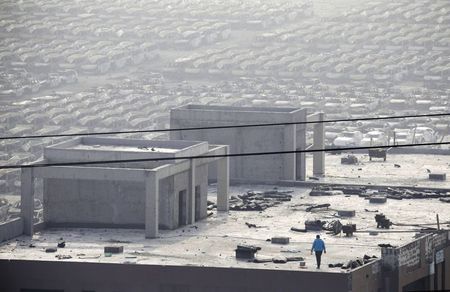-
Tips for becoming a good boxer - November 6, 2020
-
7 expert tips for making your hens night a memorable one - November 6, 2020
-
5 reasons to host your Christmas party on a cruise boat - November 6, 2020
-
What to do when you’re charged with a crime - November 6, 2020
-
Should you get one or multiple dogs? Here’s all you need to know - November 3, 2020
-
A Guide: How to Build Your Very Own Magic Mirror - February 14, 2019
-
Our Top Inspirational Baseball Stars - November 24, 2018
-
Five Tech Tools That Will Help You Turn Your Blog into a Business - November 24, 2018
-
How to Indulge on Vacation without Expanding Your Waist - November 9, 2018
-
5 Strategies for Businesses to Appeal to Today’s Increasingly Mobile-Crazed Customers - November 9, 2018
Chinese Explosion: 19-Year-Old Firefighter Found Alive
At least 21 fire fighters were among the victims of the explosions in Tianjin on Wednesday night, in possibly the highest death toll among fire crews since the founding of the People’s Republic of China in 1949.
Advertisement
A young firefighter has been recovered from the rubble of the massive, catastrophic detonation in a Chinese port city. A man around the age of 40 was reported to have been rescued from the site on Saturday. Eighteen are still missing and 66 have been take to hospital.
“Reinforcements had just arrived on the scene and were just getting to work when the explosions occurred and therefore there was no chance to escape, and that’s why the casualties were so severe”, Tianjin Fire Department head Zhou Tian said at a news conference early Friday.
The exact cause is not yet known, but China’s President Xi Jinping has demanded those responsible are “severely handled”.
Fires are still sending plumes of smoke over the destroyed buildings, burned-out vehicles and crumpled shipping containers that bore the brunt of the explosions.
Questions have also been raised over whether firefighters responding to an initial blaze at the warehouse could have contributed to the detonations by spraying water over risky substances. Gao Huaiyou, the deputy director of Tianjin’s work safety watchdog, has told the state-run Xinhua news agency that major discrepancies between inventories supplied by its managers and delivery records held by customs officials are hampering that process.
The blast sent huge fireballs into the air and triggered a blast wave that could be felt miles away.
The cause of the blast is still being investigated.
The Beijing News reported that a factory owner said there were at least 700 tonnes of sodium cyanide stored in the warehouse, and traces of sodium cyanide were found in nearby drains after the blasts. Six senior Ruihai executives have been detained.
The People’s Daily newspaper tweeted that anti-chemical warfare troops were “to handle highly toxic sodium cyanide discovered at #TianjinBlast site”.
The warehouse, designed to house risky and toxic chemicals, was storing mainly ammonium nitrate, potassium nitrate and calcium carbide at the time of the blasts, according to the police.
One expert told a press conference in Tianjin that the air and water there was safe.
In an interview with the Shanghai-based publication The Paper, a fire official at the Ministry of Public Safety, Lei Jinde, is quoted as confirming that the first wave of firefighters used water to cool down areas on fire.
Advertisement
The environmental group Greenpeace, citing a local monitoring station, said it believed other unsafe chemicals stored at the site included toluene diisocyanate and calcium carbide.





























